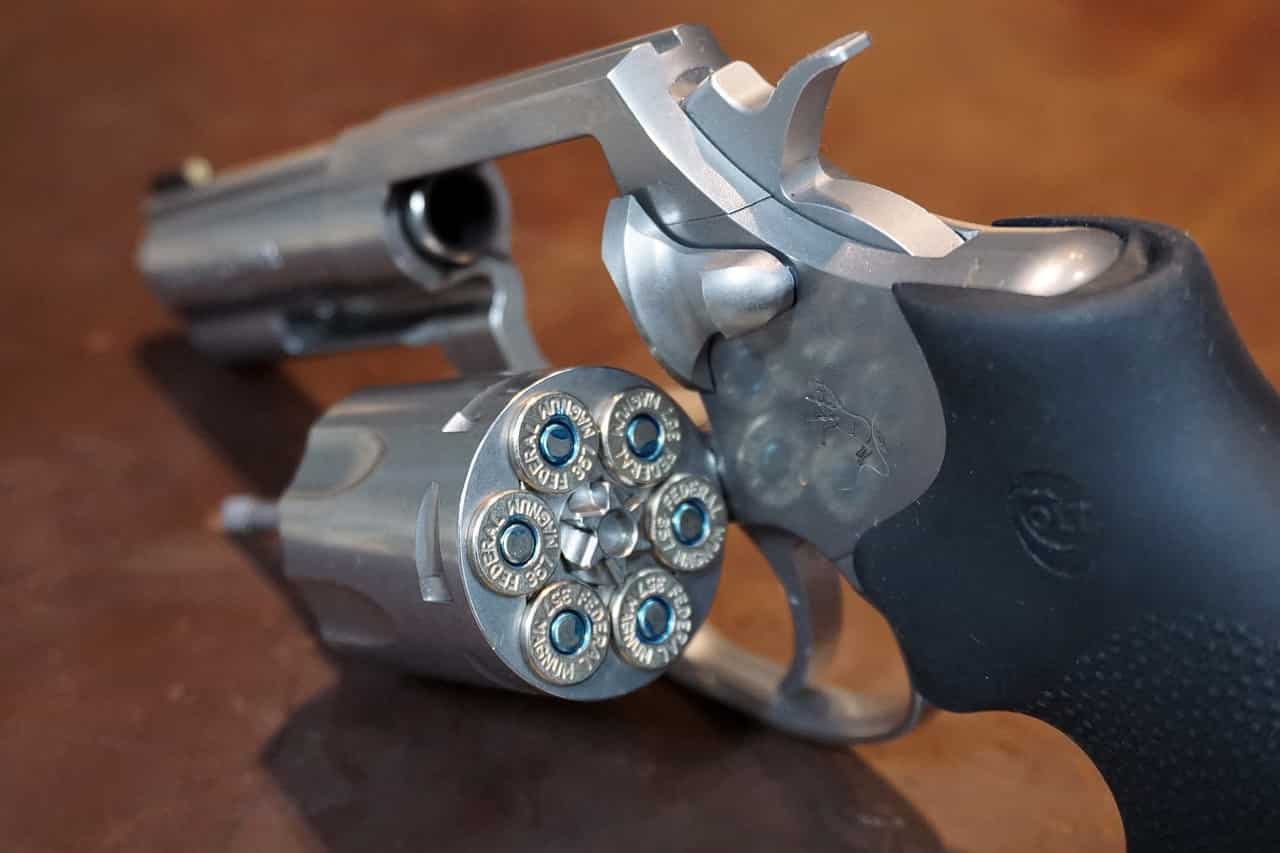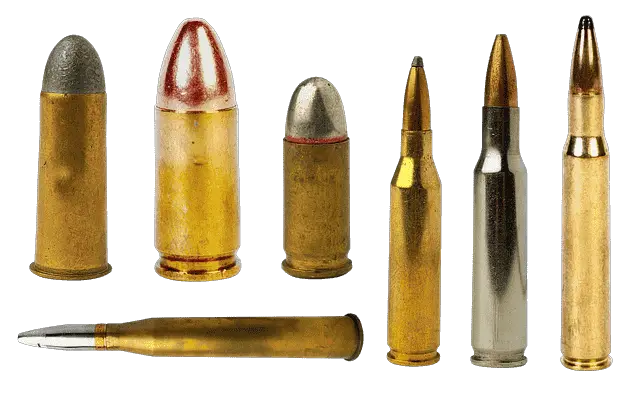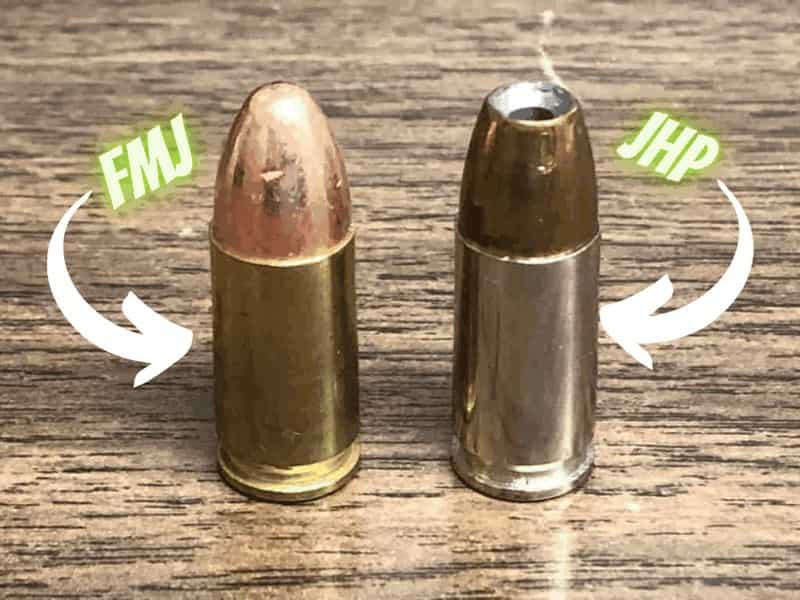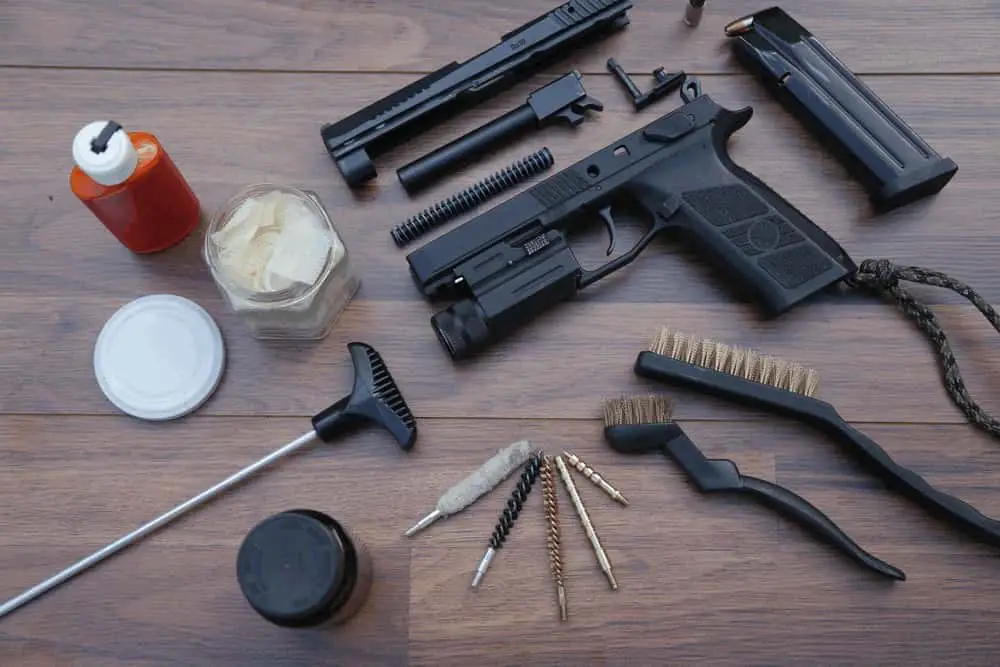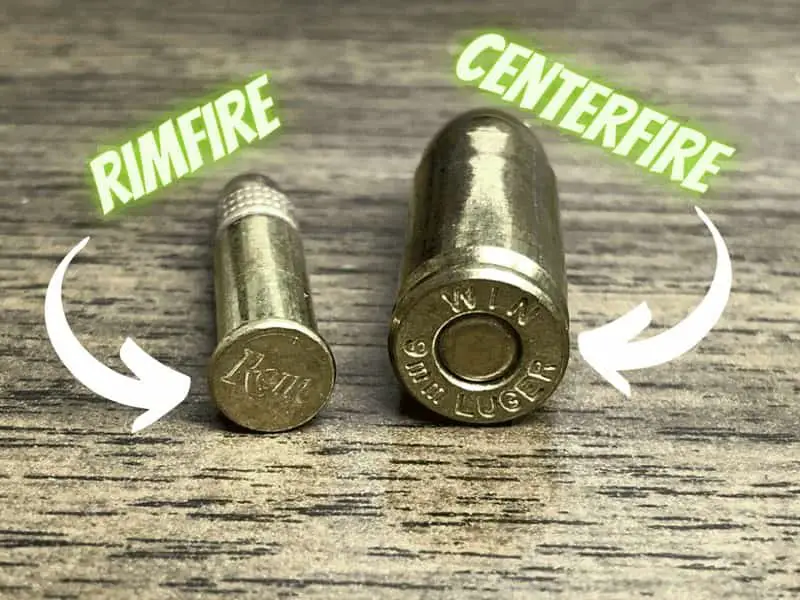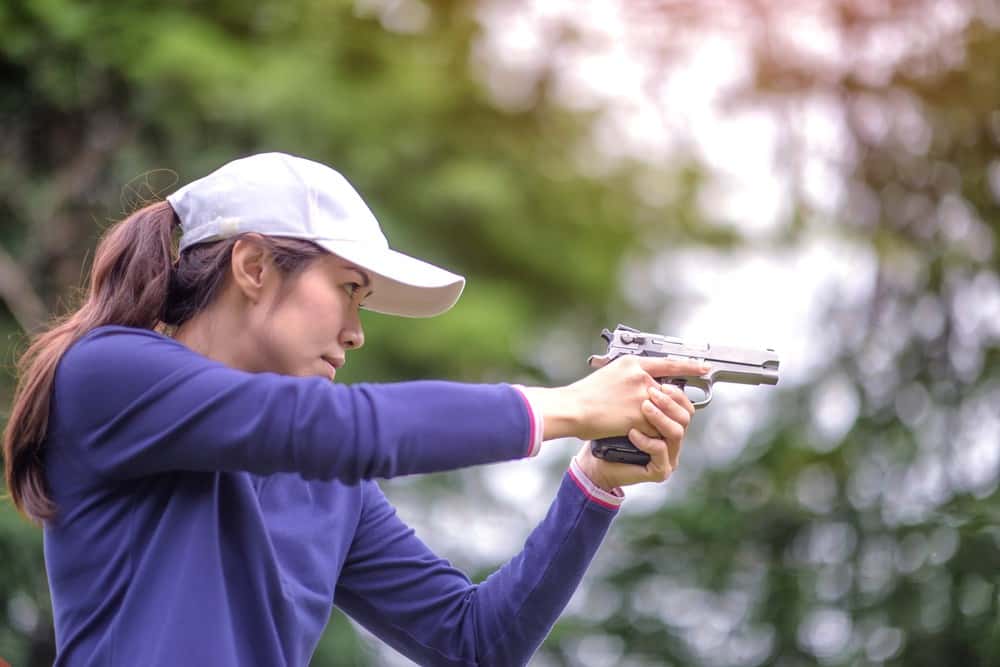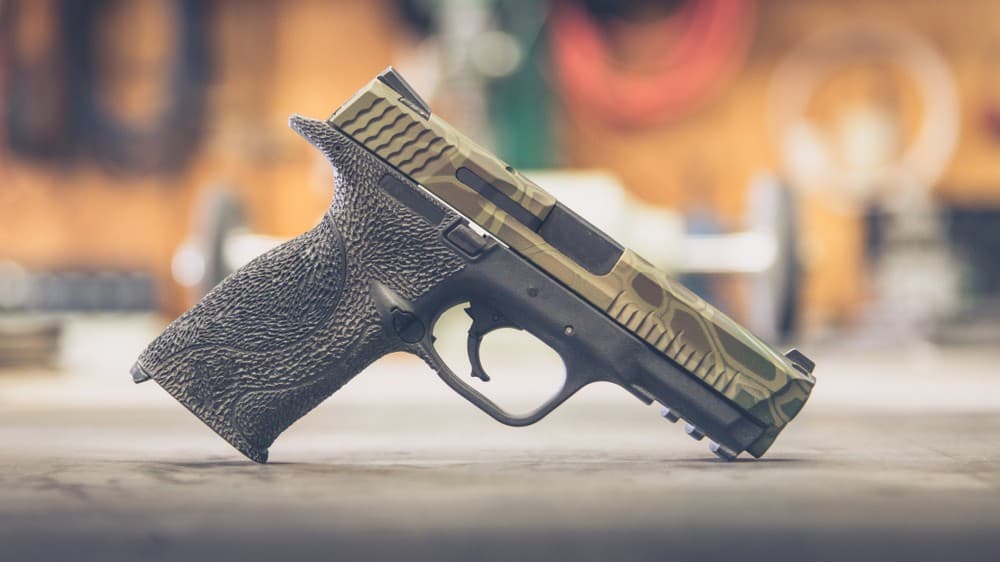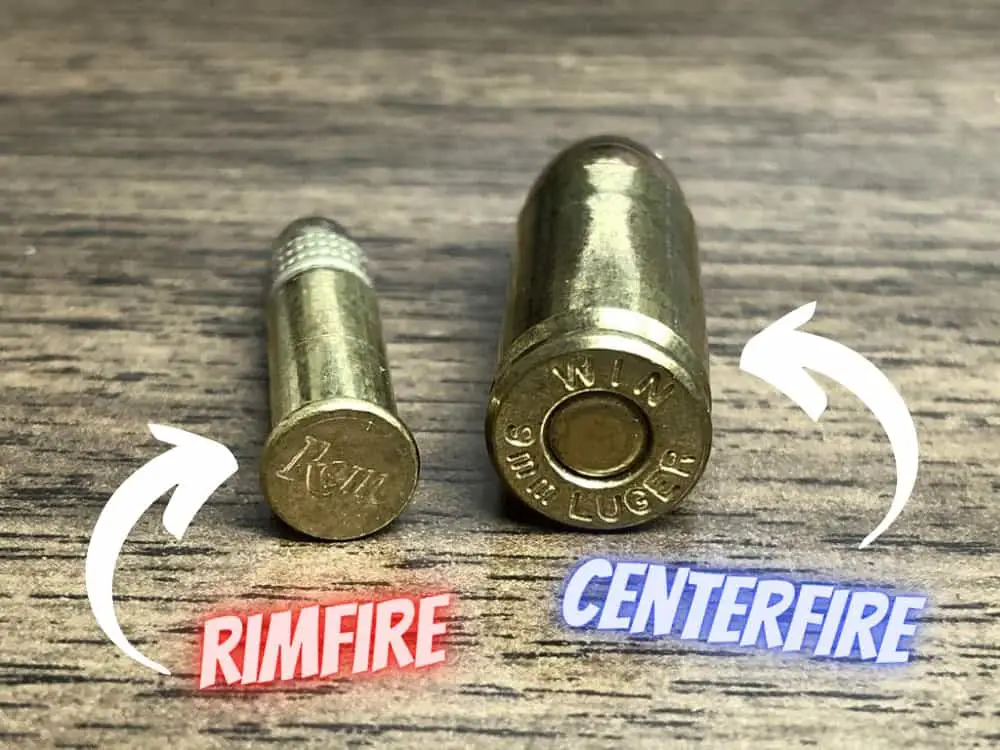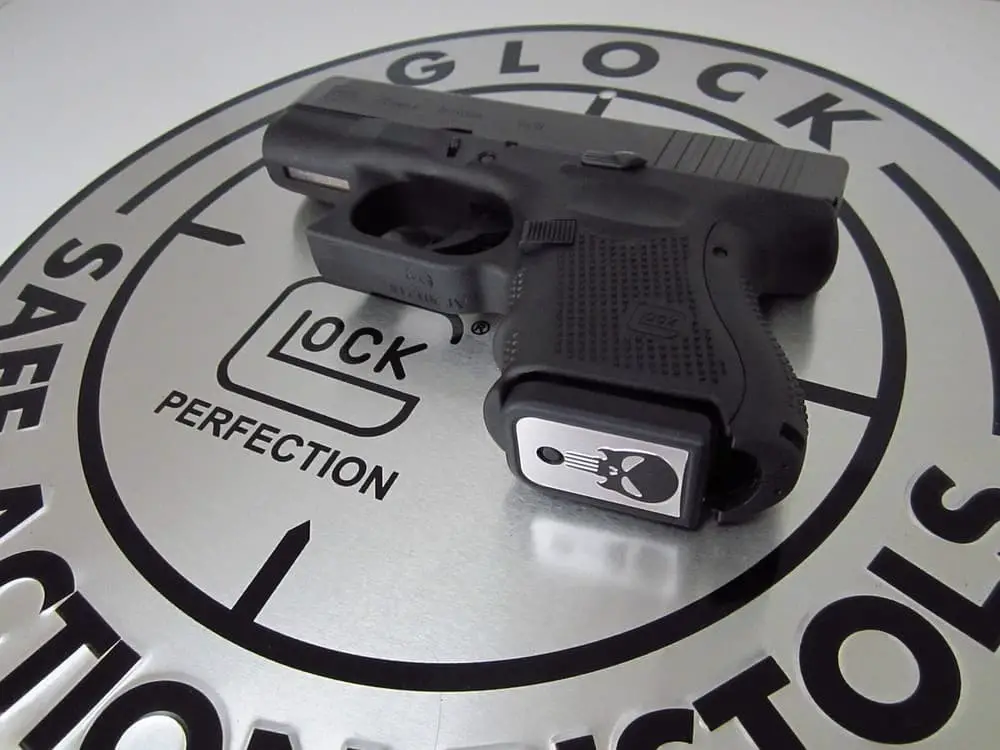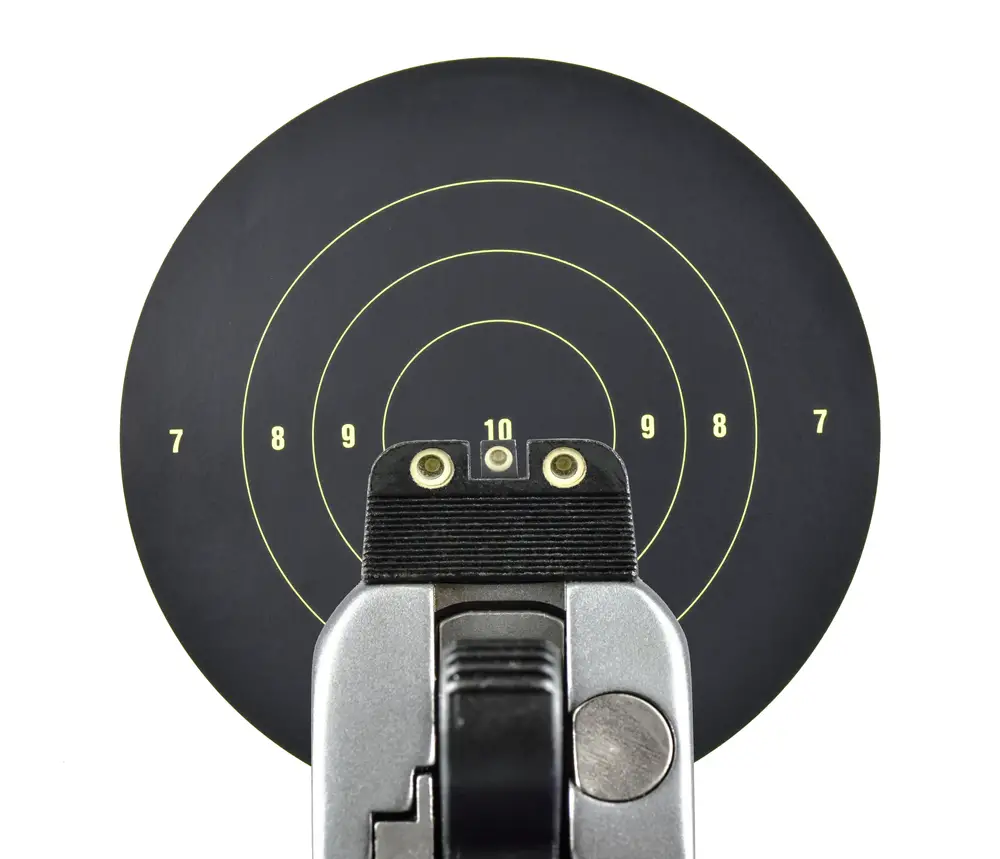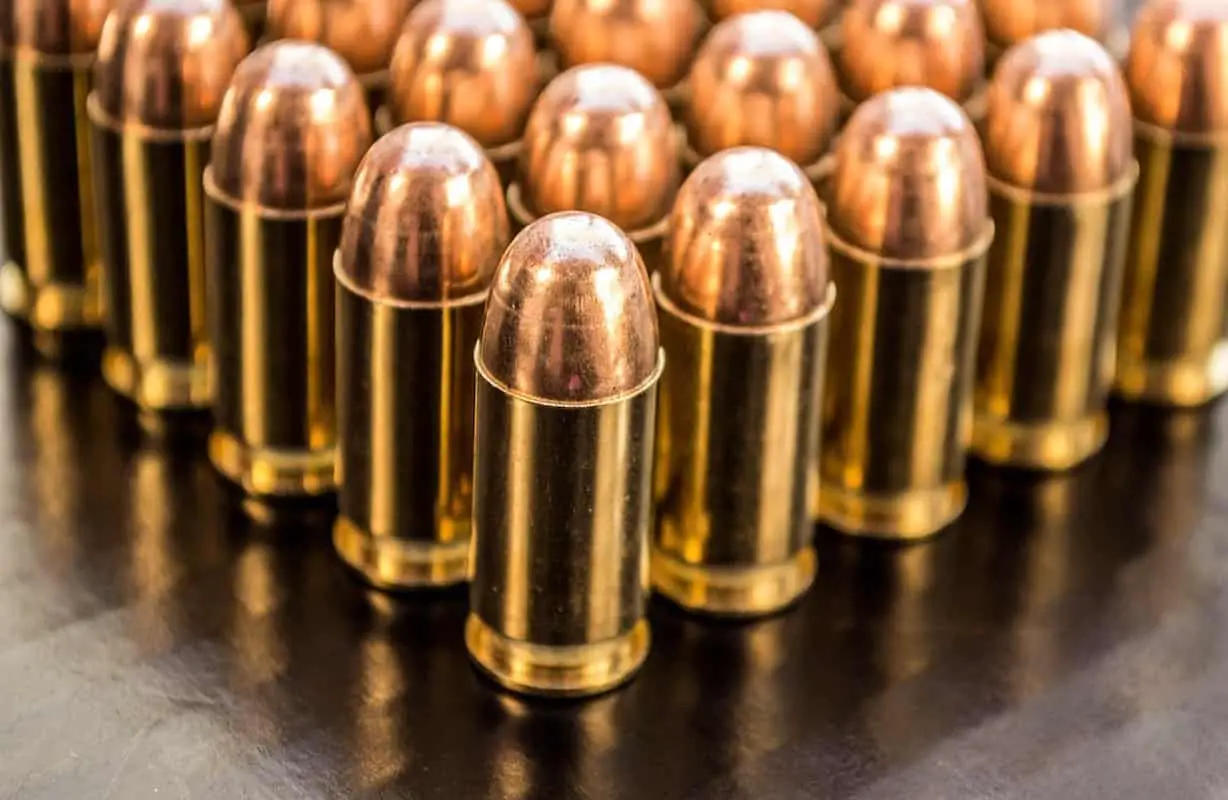Understanding Massachusetts Concealed Carry Requirements
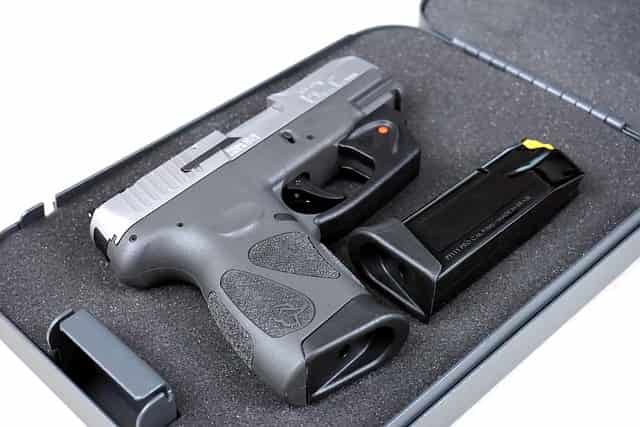
To legally carry concealed firearms in Massachusetts, you must understand the stringent criteria set by the state. Comprehending the eligibility requirements and distinguishing between the License to Carry (LTC) and Firearm Identification (FID) is crucial for compliance.
Eligibility Criteria for LTC and FID
LTC: As an applicant, you must be at least 21 years old to apply for a License to Carry (LTC). You need to be a resident of Massachusetts or a non-resident with a resident alien permit. Importantly, you cannot be a prohibited person as defined by the state—this includes individuals with felony convictions, certain misdemeanor convictions, and those with a history of drug or alcohol abuse.
- Age Requirement: Must be at least 21 years old
- Resident Status: Must be a Massachusetts resident or a non-resident with a resident alien permit
- Prohibited Person: Must not be prohibited by law due to past convictions or substance abuse
FID: Conversely, if you are between the ages of 15-21 or do not wish to carry concealed but still want to legally possess non-large capacity firearms and ammunition, you may apply for a Firearm Identification Card (FID). Those under 18 need parental consent. The same prohibitions regarding criminal history and substance abuse apply.
- Age Requirement: 15-21 years old (under 18 with parental consent)
- Firearms and Ammunition: For non-large capacity weapons only
- Prohibited Person: The same prohibitions apply as with the LTC
Differences Between LTC and FID
LTC: The LTC not only allows possession but also the carrying of handguns, rifles, shotguns, and feeding devices both openly and concealed. It encompasses all that the FID offers, with the added benefit of being able to carry firearms in public spaces according to state laws.
- Carry: Permits carrying all legal firearms openly or concealed
- Types of Firearms: Handguns, rifles, and shotguns, including large capacity
FID: The FID card is limited to the possession of non-large capacity rifles and shotguns, as well as ammunition. It does not permit the carrying of any concealed firearms.
- Carry: No carrying capabilities
- Types of Firearms: Non-large capacity rifles and shotguns only
It’s essential to undergo state-approved firearm training courses and know that Massachusetts does not honor LTCs or FIDs issued by other states. Be sure you meet all local and state requirements before applying for your LTC or FID in Massachusetts.
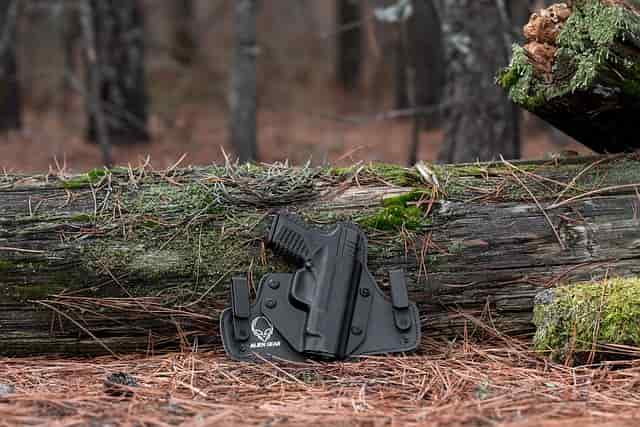
The Application Process for Concealed Carry Permits
Understanding the requirements and steps necessary for acquiring a concealed carry permit in Massachusetts is crucial. This section will guide you through the application process, ensuring you fulfill all legal obligations for a License to Carry (LTC) or Firearms Identification Card (FID).
Steps to Apply for Massachusetts LTC/FID
To apply for a firearms license in Massachusetts, you must start by completing a certified firearms safety course. Afterward, you should download the application from the official Massachusetts government website. Submission of a completed application is done through the police department of your town of residence. During this process, be prepared to have an in-person interview and possibly provide fingerprints.
- Step 1: Complete a Massachusetts Basic Firearms Safety Course.
- Step 2: Obtain the application for LTC/FID from the Mass.gov website.
- Step 3: Submit the application along with the fee to your local police department.
Documentation and Identification Requirements
When submitting your application, you are required to present a form of identification such as a driver’s license or passport. Non-residents or those with resident alien permits should provide additional documents such as a visa. Make sure to include the Massachusetts Basic Firearms Safety Course certificate and any change of address notification form if applicable.
- Required Documents:
- Valid ID (driver’s license, passport)
- Firearms Safety Course Certificate
- Change of Address Notification Form (if relevant)
Background Checks and Legal Compliance
The application process involves strict background checks conducted by the Firearms Records Bureau. These checks will take into account criminal history, mental health, and whether all provided information is accurate. It’s essential that you disclose any history of mental health issues as this is a part of the legal compliance required for the permit to be issued. Expect the background check process to take several weeks before a determination on your application is made.
- Background Check Components:
- Criminal history review
- Mental health records
- Accuracy of application details
By adhering to these steps and requirements, you will be on the right path to legally obtaining a concealed carry permit in Massachusetts.
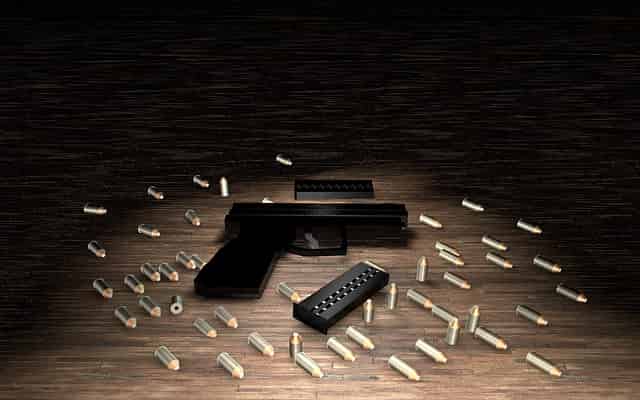
Massachusetts Firearms Training and Education
When seeking a concealed carry permit in Massachusetts, you need the right educational foundation. High-quality firearms training ensures your safety and compliance with state laws.
Choosing the Right Firearms Safety Course
Your journey begins by enrolling in a Massachusetts Basic Firearms Safety Course. These courses are mandatory for obtaining a firearms license in the state and provide critical knowledge on safe handling and storage of firearms. When selecting a course, ensure it's approved by the Massachusetts State Police. Remember, completion of this course provides the certificate necessary for your license application.
Private Training Opportunities
For a more personalized experience, you may consider private training sessions. Private training often offers a more focused environment where you can hone your skills under the guidance of an experienced instructor. These sessions can be booked at facilities like Massachusetts Firearms Classes and offer an opportunity to ask specific questions and receive tailored advice.
State Certified Instructors and NRA Affiliation
The quality of your training is paramount, and this is ensured by learning from state certified instructors. Many instructors also carry credentials from the National Rifle Association (NRA), showcasing their dedication to quality firearms education. This dual affiliation guarantees that your training is both comprehensive and recognized across various jurisdictions.
Legal Nuances of Concealed Carry in Massachusetts
In Massachusetts, understanding the specific requirements and restrictions of carrying a concealed handgun is crucial. Your adherence to these laws ensures your right to carry remains in good standing.
Understanding State Gun Laws
Massachusetts is known for having strict gun laws, which include specific mandates on carrying concealed handguns. To carry a concealed handgun in this state, you must have a License to Carry (LTC) that allows you to carry handguns, rifles, shotguns, and feeding devices. However, you should be aware that obtaining an LTC requires you to complete a firearm safety course. Additionally, the laws differentiate between large capacity and non-large capacity firearms and impose additional rules for each.
Carrying Firearms in Public and Transporting
When carrying a firearm in public, your LTC comes with responsibilities. You must always carry your LTC with you and produce it upon request by a law enforcement officer. It's imperative to remember that when transporting firearms in a motor vehicle, a loaded handgun must remain under your direct control. If you possess a non-large capacity rifle or shotgun, it should be unloaded and secured in a locked container or trunk if left unattended in the vehicle.
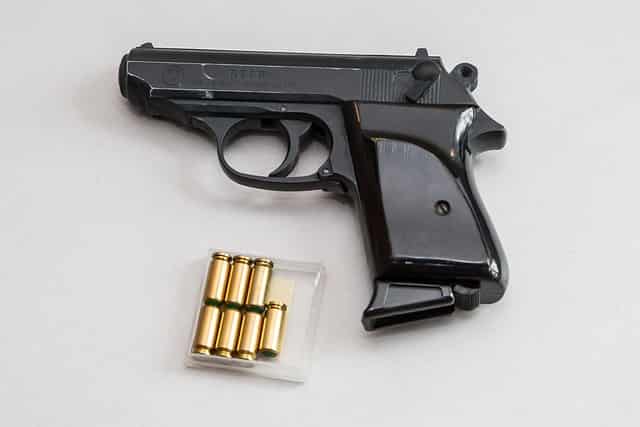
Non-resident and Resident Alien Considerations
For non-residents or resident aliens, carrying a concealed handgun in Massachusetts requires a different type of permit, known as the Non-resident or Resident Alien Permit to Possess Rifles and Shotguns. If you're a non-resident or a resident alien, keep in mind that carrying a concealed handgun without this permit can result in serious legal consequences. Importantly, while this information aims to guide you, it's not a substitute for legal advice on firearms law.
Fees, Renewals, and Changes to Concealed Carry Permits
When pursuing a concealed carry permit in Massachusetts, you should be cognizant of the fees involved, the process for renewing your license, and the necessity of keeping your information up to date.
Cost Breakdown of LTC/FID Licenses
Resident License to Carry (LTC): Your LTC is necessary for carrying handguns and is a requirement for various firearms-related activities. The application fee is set at $100, and it covers both the initial application and the renewal process. Non-resident LTC and resident alien permits also require a fee, which you need to check with the Firearms Records Bureau or local authorities, as it can vary.
Renewal Procedures and Timelines
Renewal of your firearms license must be done before it expires. Massachusetts allows you to renew online, and it's recommended to start the renewal process at least 90 days before your license is due to expire, as processing may take this long. Your renewed firearms license will be mailed to you after your renewal is processed. For specific questions on the status of your application or non-resident LTC, you should contact the Firearms Records Bureau directly.
Updating Personal Information and Address Changes
As a license holder, you must inform the local licensing authority of any changes in your personal information or address. This is a crucial step to ensure compliance and maintain the validity of your license. Any change of address must be reported within 30 days. Failure to do so may lead to complications with the legal standing of your permit.
Remember, maintaining accurate records is not only a legal obligation but also ensures that you receive pertinent feedback and updates regarding your license to carry.
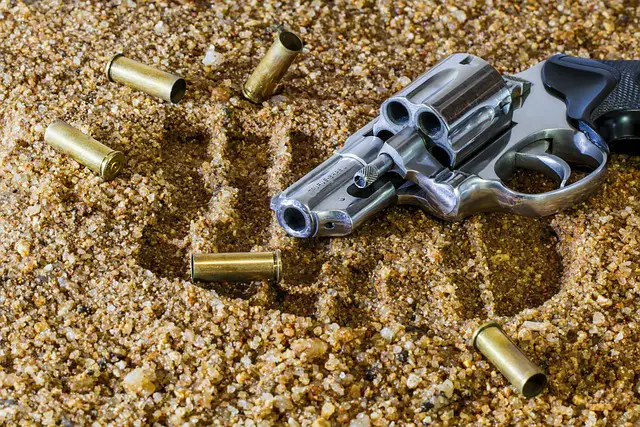
Frequently Asked Questions
In this section, you'll find detailed answers to common questions regarding the process and requirements of obtaining a concealed carry permit in Massachusetts.
What are the requirements for a Massachusetts License to Carry class?
To enroll in a License to Carry class in Massachusetts, you must be 21 years or older and have no criminal convictions that would disqualify you from owning a firearm. The class includes live firing and a review of the state's gun laws.
How can I find a certified Firearms Safety course near Worcester, MA?
You can sign up for a Local Massachusetts CCW Permit Training Class with certified professionals, ensuring the course meets all state requirements for certification.
What is the duration of a gun safety course certificate's validity in MA?
In Massachusetts, a gun safety course certificate is valid indefinitely; however, it is always advisable to stay updated with current laws and practices through refresher courses.
How long does the process take to obtain a concealed carry permit after completing the Massachusetts LTC course?
After completing the LTC course, the licensing process typically takes several weeks to a few months, as it includes background checks and processing by your local licensing authority.
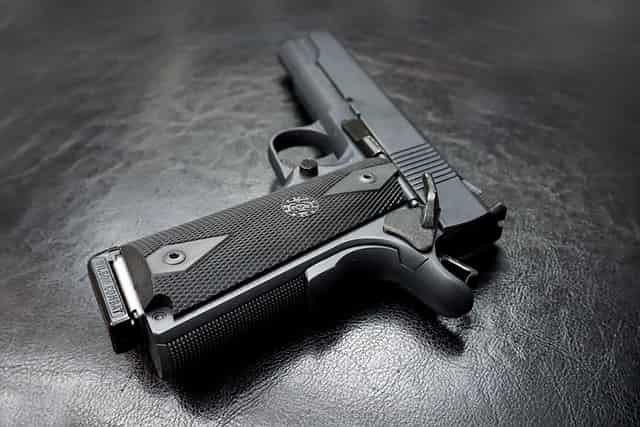
Are there any specific criteria that could disqualify an individual from obtaining an LTC in Massachusetts?
Yes, certain criteria such as felony convictions, misdemeanor convictions punishable by more than two years, or a record of substance abuse can disqualify an individual from obtaining a License to Carry.
Is there a legal limit on magazine capacity for concealed carry in Massachusetts?
Massachusetts has a legal limit on magazine capacity, allowing no more than 10 rounds for concealed carry firearms, with few exceptions for law enforcement and licensed individuals.

Jason Huskey
Owner of CCWClasses.net
Jason Huskey is a family man with three kids and a wonderful wife. He’s always starting new hobbies, but his true passion lies in shooting sports. Jason has been a CCW license holder for over 10 years and carries every day. In addition to firearms, he also enjoys playing guitar and writing songs. He tries to live by the Christian values he believes in.
More things you might enjoy…
Can a 38 Special Shoot 357 Rounds?
Image by MikeGunner from Pixabay I’ve long since discovered that very few activities give me the same thrill and sense of security as firing a gun. As a gun owner and enthusiast, I’ve always been curious about which guns can shoot which kinds of ammunition. I have a Derringer five-shot revolver that uses .22 rounds.…
Who Makes the Most Popular Brands of Ammo
If you are here to figure out who makes Herter’s ammo just look below the following table for a more thorough answer. If you are looking for a specific type of ammo, then you need to start by figuring out who makes it. There are lots of options for ammunition and each type of bullet…
What Does Full Metal Jacket Mean?
If you have heard the term full metal jacket, then you might be wondering what this means. I know that growing up, I heard this term a lot. I dismissed it as some sort of saying or cliche. Eventually, I decided that I needed to figure out what people meant when they use this term.…
How Often Should You Clean Your Gun?
After purchasing a firearm, you might wonder how often you should clean your gun. The truth is that it largely depends on how often you use it and where you live. Keep reading to learn more. How Often Should You Clean Your Gun? The short answer: do a light cleaning after every shooting session and…
What Is The Main Difference Between Centerfire And Rimfire Ammunition?
Rimfire vs Centerfire Everyone has to start somewhere. If you’re new to guns, learning the difference between rimfire and centerfire ammunition is important. Let me backtrack a moment. The first time I went out on the gun range, I had zero idea that there were different types of ammo for different types of weapons. All I knew…
Continue Reading What Is The Main Difference Between Centerfire And Rimfire Ammunition?
How Should You Hold a Handgun for Maximum Accuracy?
Whether it’s for sport or you find yourself in a defensive situation where you need to use a handgun, how you hold it will significantly affect your accuracy. Developing your handgun techniques will help you become a better shot and keep you safe. Read on to learn the answer to the question: How should you…
Continue Reading How Should You Hold a Handgun for Maximum Accuracy?
What Is Stippling On A Gun?
Hey, would you like a more firm grip on your gun? Would that help you shoot better? Well that is what stippling is for. Stippling is a modification to the grip that makes it, well, more grippy. It is done by sanding off the original finish and then using a hot soldering iron to make…
What Is A Centerfire Pistol?
To answer the question: “What Is A Centerfire Pistol?”, you must first understand that there are two main types of ammunition: Centerfire Rimfire These ammo categorizations are based on where the firing pin hits the back of the bullet to make it fire. A centerfire pistol is one where the firing pin strikes the center…
Is It Bad To Dry Fire A Glock?
There are loads of myths and assumptions surrounding handguns. If you grew up around guns, you probably heard some of these myths. Today, we will answer the question: Is it bad to dry fire a Glock. The Quick Answer Dry firing modern centerfire guns is completely fine (this includes most Glocks). The firing pin does…
What Is The Sight Picture?
When you first became interested in shooting you probably heard the terms sight picture and sight alignment being thrown around. Most people tend to use the two terms interchangeably; however, they do not mean the same thing. In this guide, I will make a clear distinction between sight picture and sight alignment. To master any new trade, you must…
What is Ball Ammo
When you hear the term “ball ammo” you may be picturing an actual ball. While the term did originate from ball shaped ammo, that’s not what it means today. Most ball ammo today is cylindrical in shape. It will have a lead core coated with copper. Keep reading to learn all about the history and…
